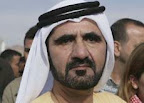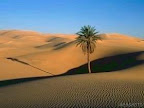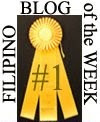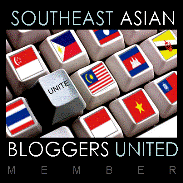Desert News

Starting today, i am sharing some relevant news from the Middle East with the title, "Desert Report".
Saudi king in historic talks with Pope
King Abdullah of Saudi Arabia was greeted by the Pope yesterday for an historic meeting marking the first such visit by a monarch from the Muslim kingdom.
The pair met for around 30 minutes with interpreters in the Pope’s private study to discuss Vatican-Muslim relations and prospects for peace in the Middle East.
Saudi stamps down on joyriders
Joyriders in Saudi Arabia face tough new penalties under a traffic law.
Joyriders will have their cars seized for 15 days and face a fine of SR1,000. Vehicles will be confiscated for a month with a fine of SR1,500 for a second offence. Third time offenders will be fined SR2,000 and their cars impounded.
The law aims to reduce the number of road accidents in the Kingdom which totalled 1.36 million over the past five years, causing 21,900 deaths and 122,600 injuries. Traffic violations take place at the rate of 11 per minute, with annual costs from road accidents reaching SR21 billion.
Ruler of Dubai tops Gulf Power league
Prime minister of the UAE Sheikh Mohammed bin Rashid Al Maktoum has been ranked the most influential businessman in the Gulf today by The Times newspaper.
He tops the GulfPower25, published following a week of Gulf-based business coverage by the newspaper which relocated its business desk to the region for its Times Gulf Business Forum.
The league table lists the most rich, powerful, influential and entrepreneurial business leaders in the Gulf region, covering the six member states of the Gulf Cooperation Council: Bahrain, Kuwait, Oman, Qatar, Saudi Arabia and the United Arab Emirates.
The Times cited Sheikh Mohammed’s vision for reform as “fuelling the frenetic development of the city and spurring the transformation of the Gulf”.
King Abdullah of Saudi Arabia ranked second in the list. “King Abdullah is, no doubt, the most powerful man in the Middle East, but he is still to put his country’s wealth and human capital to work” The Times said.
UAE president and ruler of Abu Dhabi Sheikh Khalifa bin Zayed al-Nahyan ranked third, followed by Sheikh Tamim bin Hamad al-Thaniis, chairman and chief executive of the Qatar Investment Authority, in fourth place. Saudi Arabia's Prince Alwaleed bin Talal in fifth place.
Rocketing money supply adding to inflation
Capital flows generated by investors betting on revaluations of dollar-pegged Gulf Arab currencies risk raising inflationary pressure in the region.
Inflation across the Gulf region has been rising to decade highs as a quadrupling of oil prices in the last five years drives economic growth, and the supply of homes and offices fails to keep up with demand.
With the US dollar sliding to record lows, investors betting that some Gulf states will be forced to revalue their currencies are pouring cash into assets denominated in Saudi and Qatari riyals and UAE Dirhams.
Saudi Arabia's central bank raised the reserve requirement for banks last week for the first time in 27 years to prevent lower borrowing costs from fuelling inflation after it matched a US rate cut to ease pressure on the riyal.
Construction, hospitality workers to be hit by cap
Expatriates working in the construction, tourism and hospitality, and service sectors face the prospect of being forced out of the Gulf under the controversial plans to put a cap on how long unskilled workers can live in the GCC.
The proposed six-year residency cap would target expat workers in the Gulf with below secondary school level education.
The cap was necessary to stop the erosion of local culture and to stem soaring unemployment among nationals.
Source: Arab Business News















No comments:
Post a Comment